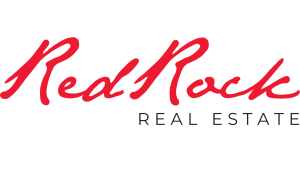When reading an offer, keep in mind that you are out to get the best price AND the best terms for you. If you focus solely on the price, you may overlook terms that could be favorable to you as a buyer. Some terms that may work in your favor: higher-than-market-interest in a second mortgage for your home the buyer …
Condominium and PUD Ownership
Builders, in an effort to combat the dual problem of an increasing population and a declining availability of prime land, are increasingly turning to common interest developments (CIDs) as a means to maximize land use and offer homebuyers convenient, affordable housing. The two most common forms of common interest developments in many states are Condominiums and Planned Unit Developments, often …
Common Ways of Holding Title
How Should I Take Ownership of the Property I am Buying? Real property can be incredibly valuable and the question of how parties can take ownership of their property is important. The form of ownership taken — the vesting of title — will determine who may sign various documents involving the property and future rights of the parties to the …
Required Reporting to the I.R.S.
Sellers of real property will have certain information regarding the sale reported to the Internal Revenue Service. This required reporting is a consequence of the Tax Reform Act of 1986; it is intended to encourage taxpayer compliance and aid in audit and enforcement efforts by the I.R.S. To help you better understand this subject, the Land Title Association has answered …
Creative Financing
Creative financing: You’ve heard of it, and, as a seller, the idea sounds pretty attractive. But, do you know everything you need to know about carrying back a second; essentially, about becoming a lender? You better know the same things that financial institutions know – you better know about lender’s title insurance. It’s time to sell your $150,000 home, a …
Closing and Title Costs
The day you go to the title or escrow company, sign your name on the dotted line, hand over a check and prepare to take ownership of your new home. It’s also the day that you and the seller will pay “closing” or settlement costs, an accumulation of separate charges paid to different entities for the professional services associated with …
FICO® Score – a Brief Explanation
When you apply for a mortgage loan, you expect your lender to pull a credit report and look at whether you’ve made your payments on time. What you may not expect is that they seem to be more interested in your FICO® score. “What’s a FICO® score?” is a common reaction. Each time your credit report is pulled, it is …
Documenting Your Assets – Verifying Your Down Payment
When buying a home, it is not enough to just come up with the money. With the exception of no asset verification loans, lenders want to verify where the money for your new home will be coming from. If you can document that the funds are coming from your personal savings, the lender is more confident of your strength as …
Closing Costs When Buying or Refinancing a Home
> This is a detailed summary of costs you may have to pay when you buy or refinance your home. They are listed in the order that they should appear on a Good Faith Estimate you obtain from a mortgage lender. There are two broad categories of closing costs. Non-recurring closing costs are items that are paid once and you …
Adjustable Rate Mortgages – The Basics
An adjustable rate mortgage (ARM) has an interest rate that fluctuates periodically. This is in contrast to a fixed rate mortgage, which always has the same interest rate. Every ARM has basic components: An index A margin Adjustment Period An interest rate cap An initial interest rate The Index An ARM’s interest rate is tied to one of many economic …
- Page 1 of 2
- 1
- 2
